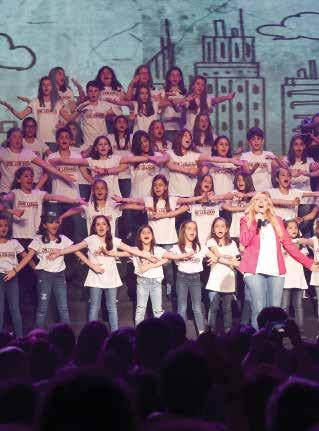

ICsummerNewsletter2015
Internat I onal College
Board of trustees
WILLIAM H. TURNER, Chairman
FOUAD MALOUF ‘56, Vice Chairman
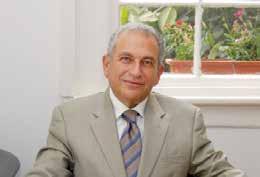
FORD FRAKER, Vice Chairman
T.M. (Mac) DEFORD, Treasurer
DONALD J. SELINGER, Assistant Treasurer

RICHARD S. WARD, Secretary
GERRIT KEATOR, Assistant Secretary
MONA BAWARSHI ‘67
WAEL O. BAYAZID ‘70
JONATHAN (JON) A. CONNER
FREDERIK O. CRAWFORD
WALID DAOUK ‘76
BAYARD DODGE
FARID FAKHERDDIN ‘85 (Ex-Officio)
AMAL A. GHANDOUR
MARWAN GHANDOUR ‘63
ANTHONY JONES
YUSUF A. KAN’AN ‘71
CHARLES NEAL MAGLAQUE
MARWAN A. MARSHI ‘79
SAFWAN MASRI
JOHN G. McCARTHY, Jr.
AZMI MIKATI
ANWAR AL MULLA ‘63
MIRNA B. NOUJAIM
AIDA REED (LUCE)
IAN REED MATTHEW A. REYNOLDS
MU’TAZ SAWWAF ’69
TALAL K. SHAIR ‘83
ISSAM SHAMMAS ‘63
MOHAMMED S. H. AL-SOLEIMAN ‘59
IMAD TAHER ‘58
AHMED TAYEB
MAYA TOHME (NASSAR)
trustees emeriti
MAKRAM N. ALAMUDDIN ‘61
RAYMOND W. AUDI
SAID S. DARWAZAH ‘76
fromNotetheEditor
For over a century, IC has been a landmark in Lebanon. Students old and new have fallen in love with its beautiful tree-lined campus. Over the years the school has seen many up heavals and troubles. But it continued to stand strong. And now, as the region is in the midst of a very serious crisis, IC has a main role than ever to play.
We believe that the way for Lebanon to survive this crisis is through educa tion. And not just any education. We are not talking about straight forward algebra or poetry lessons but a curriculum which embeds in its youth a sense of pride, ethics, independence and critical thinking skills.
We need an IC education. And so we continue to fundraise, to solicit, travel and to ask for support. The reason we need to do that is because we have to continue the legacy started more than century ago.
Very little can stop our momentum. As I write this, excavations for the new Middle School and Pre-school are well underway. In two years’ time or so, we will be able to boast yet another achievement: brand new state-of-the art facilities for our state-of-the-art education.
Until then, we will – and must – continue to appeal to you for support. Our tuition fees cannot possibly cover such projects.
In this issue, we bring you many stories. Some are of IC activities and some are of our alumni. Read on about the school’s outreach and media literacy programs.Discover
how active the school continues to be through its choirs, its ath letics program and class projects.
KHALIDANNETHOMASGERARDW.HILLR.HOTCHKISSWILLIAMH.KENTSTANLEYM.SMITHAL-TURKI‘61
PETER H.
administration
Don Bergman, Ed.D – President
Mishka M. Mourani – Senior Vice President
Moufid Beydoun – Vice President, Alumni & Development
Talal Jundi, Vice President for Finance & Chief Financial Officer
Nancy Yacoub - Vice President, Corporate & Institutional Affairs
Diana Abou Lebdeh – Director, Upper Elementary/Middle, Ain Aar
Hiba Chaaban – Director, Human Resources
Wadad Hoss - Director, Middle School
Julia Kozak - Director, Elementary School
Ghada Maalouf – Director, Preschool
Lina Mouchantaf – Director, Preschool/Lower Elementary, Ain-Aar
Paula Mufarrij – Director, Secondary School
Mahmoud Shihab – Director, Educational Resources Center
Find out what some of our Alumni have been up to recently.
And for those history fans amongst you, enjoy the continuation our now widely read series about the school’s founder, Alexander MacLachlan.
I want to thank each and every one of you for your unwavering support. IC just wouldn’t be IC without you. I hope to see you all in a new round of reunions.Bestregards,
Moufid Beydoun ‘64 Vice AlumniPresident&Development
EDITORIAL TEAM:
Editor-in-chief: Moufid Beydoun
Editor/Writer: Reem Haddad
Production coordinator: Sana Yamout
Design: Nazha Merabi
Cover Photo: One Lebanon Concert. Rémi Bendali and IC students.
2 summer 2015
FEATURES
The Adventures of Alexander MacLachlan Smyrna (Part XI) 4
One Lebanon 6
From Beirut to Bekaa: ERC and the Omar al Mukhtar School 8
The Tournament 10

The Join Forces at Ain Aar 12 Media Literacy: No longer a Luxury 14
CAMPUS NEWS
The Message at Ain Aar
The Amis Girls’ Choir Festival 16 Alton Reynolds Tournaments
IC’s First Senior Rugby Tour to London Gymnastics Competition 17
The Magical Afternoon: Dream Lebanon Goodbye, and thanks 18 The Mayfair Event

ICPC Dinner 19 International Day Labor Day Dinner 21
DEVELOPMENT NEWS
Dinners and Events 22
ALUMNI
Escape from Nepal 26
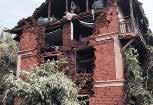
Beirut Art Fair 28

Hope: Anything is Possible 30
Alumni Updates 32
Letters to the Editor 34
In Memoriam 35
We will be celebrating the:
10th Graduation Anniversary for the graduates of 2005 on July 18th 2015 at 7pm at the Ras Beirut Campus.
20th Graduation Anniversary for the graduates of 1995 on July 21st 2015 at 8pm at the Ras Beirut Campus.
25th Graduation Anniversary for the graduates of 1990 on July 24th 2015 at 8pm at the Ras Beirut Campus.
For tickets/information, contact the Alumni & Development Office at: alumni@ic.edu.lb Tel/fax: 961 1 367433
SUMMER 2012 3 Contents suggestions,Forcommentsoremailusatrhaddad@ic.edu.lb
The Adventures of Alexander MacLachlan:
In only 15 months, he had managed to build a state-of-the art, picturesque campus which boasted three major buildings, seven small auxiliary buildings, servant quarters, two gate lodges, a laundry, drying shed and a lavatory building. It was the campus that he had been seeking to build for more than twenty years…
After much deliberation, Rev. MacLachlan decided to hold the official inauguration of the new IC campus in January 1914 - just after Christmas vacation. He wanted it to be a special affair and there was much ado every where. Officials and missionaries from all over Smyrna and Asia Minor were invited.


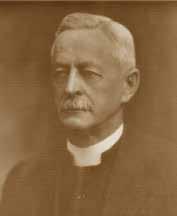
MacLachlan meticulously planned the whole thing. He kept a wary eye on the weather. He had never seen such a wet win ter season before. What if it rains during the ceremony? Already things were not going too well. It was really most unfortunate that there had been some kind of mix up with the Khe divial Mail Steamship Company at Beirut, with the ship setting off without of ficials from the Syrian Protes tant thecampus,ThecLachlan’sreachedeventuallytownwhispersthereLebanesethem(AUB)CollegeleavingatthePort.Moreover,wereinwhichMaears.newICsaidwhispers,
was a plan of the US government to get a foothold in the country.
An adamant MacLachlan devoted half a page in the school’s paper “Campus Notes” defending his precious school’s reputation.
“Others realize its (IC’s) true nature,” he wrote, “a pure, philanthropic effort to afford the young men of the Levant the opportunity to obtain a thorough education; physical, intellectual, moral and spiritual. One smiles at the absurdity of the American government subsidizing the International College for self ish or ulterior aims.”
But there were more troubles to come. In an effort to involve the students in the occa sion, MacLachlan had assigned some students to take care of the bunting decorations for theAndevent.this is when things seemed to get out of control. The Greek students insisted on an excessive display of Greek flags. This did not of course sit well with the Turkish students. The fighting between the two groups was se vere enough to summon the police. To make a long story short, the two leaders from both groups were expelled from the school.
This was but a small inkling of the future troubles to come. But for MacLachlan, his main preoccupation at the moment was orga nizing the inauguration of the campus.
Things seemed to settle down and the preparations continued.
Finally, the big day arrived.
Protestant Minister Dr. Alexander MacLachlan began planning the inauguration of the International College in Paradise Campus.
Inauguration of the new IC campus in Paradise
4 summer 2015
(PartSmyrnaXI)
On January 15th 1914, the day dawned bright and clear. There was no sign of the rain which seemed relentless all season. Soon special trains started bringing the crowds which included del egates from other American Colleges in Turkey as well as the Greek Metropolitan of Smyrna, the Very Reverend of Smyrna, foreign consuls, the Grand Rabbi and heads of other religious communities.
More notable dignitaries came by ‘au tomobile’ - still a novelty. These included the Governor General Rahmi Bey and Pertev Pasha, Commander in Chief of the 3rd Army Corps. The rest either came by carriage or on foot.
More than 2,500 arrived at the newly built campus in Paradise – all decorated for the occasion in the College’s colors of red and MacLachlanwhite.
was waiting for them at precisely 2pm at the school’s gate. It was adorned with two large flags: Ameri can and Turkish. There were no signs of the earlier troubles. MacLachlan then presented the gilded key to Governor General Rahmi Bey to unlock the gate.

The campus was now officially open.
Boy scouts, followed by the students and faculty singing College songs, led the procession to the main building which – after a prayer and address – was duly
opened.“Inview of the fact that these splen did buildings at Paradise, which we are inaugurating today, represent, as far as their construction and supervision are concerned, the unremitting labors of one man, almost unaided, and constitute an achievement of sustained energy and perseverance without parallel in Smyrna,” announced Sidney La Fontaine, Esq, the Vice-President of the Board of Managers of the College, “… it was therefore re solved by the board of managers that this hall should be named MacLachlan Hall, the name to be engraved and placed in a prominent position and in letters indelible for all time, to perpetuate a record of strenuous labor in, and develop to, the cause of education on Christian lines in this country.” (Today, over 100 years later, the building still carries the MacLachlan
name engraved just above the doors). Guests passed into the marble space of MacLachlan Hall where he unveiled a plaque giving thanks to the Kennedys –the main sponsors of the new campus. Mrs. Kennedy had refused to have a building named after the family, but Ma
cLachlan had insisted to at least put up a plaque bearing the Kennedy name.

The procession then moved to the Gymnasium and Auditorium. Each received a blessing and a speech. The ceremony was concluded by students singing IC’s Alma Mater – written by MacLachlan himself.
Between four and five o’clock, the MacLachlans retired to their new home, the Kenarden Lodge, where officials, delegates and special guests came to ‘visit’ while the rest of the crowd freely wandered in and around the campus buildings and enjoyed basketball games in the new Gymnasium.
Finally, the day ended with a Grand Concert by the full orchestra of the Smyrna Philharmonic Society in the large hall of the Auditorium.
By nightfall, all the buildings on cam pus were lit up for a good fifteen minutes – proudly showing off the campuses electric capabilities.
“By shortly after 6:30, our campus had resumed its normal appearance and we were able to look back on these ceremo nies not only with feelings of satisfaction and relief, but also with the assured good wishes and hearty congratulations of all who shared the afternoon’s experiences with us,” wrote MacLachlan in the Cam pus
ButNotes.while Maclachlan was basking in the success of the inauguration and the lovely campus, a dark cloud was begin ning to gather over the region. Unbe known to the Protestant minister, he was about to face his biggest challenges yet.
To be Historicalcontinued…..information based on: an interview with Dr. Howard Reed (sum mer 2011); Potpourri of Sidelights and Shadows from Turkey, by Alexander Ma cLachlan, 1937, Campus Notes, Special Inauguration Number, Vol.1 No 4 March 1914

 Kennedy Plaque in MacLachlan Hall
MacLachlan Hall
Alexander MacLachlan contemplating his beloved new
Kennedy Plaque in MacLachlan Hall
MacLachlan Hall
Alexander MacLachlan contemplating his beloved new
summer 2015 5
KenardencampusLodge
LebanOneOn: United Tomorrowfor
To most of the young audience, she was a newcomer to the scene. But any Lebanese over 30 would recognize her immediately: Rémi Bendali, the fouryear-old child singer who sang for peace during the vicious Lebanese civil war.
Now, she was back and brought the older audience members to tears when she opened the One Lebanon concert with her iconic song “Atouna al toufouli” (Give us our childhood). The difference this time was that she was accompanied by none other than the IC choir. The children, the eldest 12, had never heard of her but quickly memorized the words after only a day’s notice.
IC students knew they were being part of something big. For, after hugging and practically suffocating some of the famous Lebanese singers backstage, they took part in an opportunity of a lifetime: singing a message of peace to the coun try in front of more than 8,000 people.
They had all come on Friday, May 8th, to the Forum de Beirut to attend the One Lebanon concert which gathered over 35 celebrities. Their message: unite.
The concert was held for the first time last year. Its success has made it an an nualTheirevent.song “One Lebanon” quickly became a hit. All singers – including the
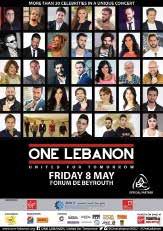
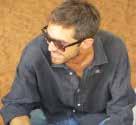

IC choir – performed it at the end of the show. A closer look on stage, however, suddenly saw two new grinning faces on stage: one belonged to Ziad Mikati, the Vice President of One Lebanon, and the other belonged to Thomas Fletcher, the UK Ambassador. And only a few people away was the star and resident of One Lebanon: Tania Kassis.
Unbeknown to most, it was actually this trio that concocted the idea of a One Lebanon. It all happened during an autumn dinner at the Ambassador’s house. That is where Mikati met Kassis, a soprano singer who had just moved from Paris. Mikati was a relatively new Beirut resident from New York. You could call it a historic meeting. For then and there, the idea of uniting the Lebanese through song came about.
“We were feeling sad about what’s happening in the region and in Lebanon” recalled Mikati. “We felt that we were not doing anything to help our country or any marginalized community in it.”
That’s when Kassis came out with her idea: let’s get celebrities together on stage to sing for a common cause.
Ziad Mikati
6 summer 2015
And so it was that One Lebanon wasLinaborn.Moukheiber, Director of De velopment at Saint George Hospital University Medical Center, is also one of the founders. Together, Tania, Ziad and Lina started planning.
While Kassis took on the details of planning the concert, Mikati took on One Lebanon’s other task: coming up with a constructive citi zenship education manual for the country. The idea is to integrate peace education in the schools’ curriculum.“OneLebanon is not just a concert,” said Mikati. “We want to create agents of change in differ ent communities. Our future goal is to identify One Lebanon ambas sadors throughout the country.”
It may seem an impossible feat for those who haven’t met Ziad Mikati. Yet the IC dad (Saad in Pre-school) doesn’t seem to need sleep. He does claim to eat – at least during the special cooking times he reserves on Sundays for his family.
The 33-year-old is a rare find. A Lebanese who has managed to put aside his own beliefs (a personal thing) and celebrates the differences in religion. In

Lebanon “we are all one,” he said. “All of Inus.”awhirlwind of energy, he manages to be active in several non-govermental organizations and gives seminars on interfaith dialogue. Moreover, he has his own foundation, ACT – which he established during his years in the US in an effort to establish a link between Lebanese-Americans and Lebanon. Oh, and he works. He is currently the Public
Policy and Government Relations Manager at the Mikati Foundation. But when he and Kassis met at that dinner, he knew that he had to take on just one more thing. The impact of such a concert would go far in spreading the message of a peace ful interfaith existence that he so longed to see.
At 9:30pm, the concert began and went without a hitch. For Kassis on stage and Mikati in the audience, it was a dream come true. They did what they had set out to do: unite the Lebanese for a common cause.


“We have such a unique country in the region,” he said, “and the truth is that we cannot live with out each other. It just wouldn’t be Lebanon.”
One Lebanon holds various non-perform ing events throughout the country. The NGO is also preparing to offer courses on citizenship for teachers, students, vol unteers, other NGOs and public officials who, in turn, teach it in their villages and communities. For the latest event or more information about One Lebanon, go to http://www.one-lebanon.org/
One Lebanon star, Anthony Touma, flanked by IC students
summer 2015 7
From beirut to bekaa:
ERC and the Omar al Mukhtar School


The welcome was very warm indeed. “Welcome IC,” said Qanoo Khalil, the Ed ucational Supervisor of Omar al Mukhtar school as she shepherded us inside the administration building. “Welcome!”
After more than an hour’s ride in the Bekaa valley, we arrived to the school, a four building campus in the village of Khiara, nestled between Mount Lebanon to the west and the anti-Lebanon moun tains to the east.
“How wonderful of you to visit us,” she continued over piping hot tea. We were soon joined by Dr. Youssef Smaily, the school’s General Educational Supervisor.
But this was no social visit. We were on a mission. An educational mission that is. Our quest was to follow up on a workshop given by IC’s Educational Resource Center. Better known as ERC, the department is IC’s unknown soldier which juggles many hats including the periodical evaluation of the curriculums, teacher exchange programs, organizing campus lecturers, in-service teacher train ing, and the outreach program – where IC teachers themselves give workshops to their local and sometimes international counterparts. While private schools are charged a symbolic sum, public school teachers attend at absolutely no charge.
We have a responsibility to share our expertise,” said Dr. Mahmud Shihab, Di rector of ERC, who recently received the “Make it Happen Award” for sharing his expertise in contextualizing the ISTE stan dards – i.e. integrating technology in IC’s curriculum. “It’s our social responsibility and part of our citizenship. We develop global citizen leaders at IC and we feel we have this commitment towards our society to help other schools produce global leaders as well.”
Over the past ten years, over 5,000 teachers from 750 schools, public and private, have taken part in IC’s work shops. They are held in real classroom settings where IC teachers share their own personal experiences. “We do not preach theories,” said Shihab. “We speak the teacher’s language and we share our hands-on experience from the class room.”Once a year, ERC sets up workshops in semi-remote areas to serve village schools. Usually, one school is chosen in the area to host the workshops. Two years ago, that school was Omar al Mukhtar.Omaral Mukhtar and IC’s relationship goes back to 1980 when former Educa tion Minister Abdel Rahim Mrad decided to fund a much needed school in the area. IC then came on board to help set it up. “It was completely under the supervision of the ERC,” said Qanoo who was there at the time. “They chose the administrators and teachers and even the furniture.”ButonJune 5, 1982, Qanoo was
8 summer 2015
at IC’s campus participating in an IC workshop when Israel attacked. The inva sion brought the Israeli army just a few kilometers from Omar al Mukhtar. The school shut down. In 1984, it re-opened and since then teachers have continued to participate in ERC’s workshops.
“We still turn to them to learn about the latest teaching methods,” said Smaily.
Today, the school serves 2,000 students (Pre – K12) from 45 villages. It boasts an active extracurricular program, a rich art and theater program and even a mini international day.

Village life, it seems, revolves around the school. The 439-seater auditorium is often used as a cinema (the nearest theatre is in Zahle).
But the school’s pride and joy is their “no child left behind policy”. Rarely is a child turned away, especially recent
‘foreign’ arrivals. A special department “linguo” has been set up for students who don’t speak a word of English or Arabic. Most are the children of immi

BrIEf HISTOry Of ErC
In the summer of 1937, IC conduct ed student welfare camps for villagers in various parts of Lebanon, and social services for the poor in the Beirut area. It also developed a farm management program to encourage the sons of landowners to manage their properties more efficiently.In1959Dr. rochfort, the Academic Vice-President, strongly felt that the opening of an educational resource center at IC would be indispensable for the effective use and adoption of the teaching methods and new educational approaches that IC had been in troducing. And so ErC opened with the aim of not only serving the school but also as many other schools in the area as its facilities permitted. By the 1960s, ErC had grown into a center which provided consultation, assessment, and professional workshops for teach ers, research, and a variety of other professional services to over forty schools in Lebanon, the Gulf, and many other Arab countries
Today, the ErC organizes an ex tensive program of workshops and seminars, arranges teacher exchange programs, organizes campus lectur ers, and periodically evaluates the school’s curriculum.
grants to Brazil or Venezuela who sud denly returned to Lebanon. The “linguo” program currently has 200 students with an average of 40 new students arriving every“Weyear.have 16 and 17 year olds who only spoke Spanish when they first ar rived,” said Qanoo. “But, by the end of their secondary years, not only do they speak English but they pass their SATs and continue to university.”

The success of its school spurred the creation of similar schools (all under the umbrella of Omar al Mukhtar) in four other Bekaa regions including a board ing school for underprivileged children. Teachers from all four schools participate in IC Ourworkshopsmissionaccomplished, we head back to Beirut with a message to ERC. “Please come back to our area soon,” Qanoo had said. “The village schools needERCyou.”duly promises to return but only after setting up some workshops in the formerly Israeli occupied southern region of Marjeyoun and surrounding villages.
 IC teachers conducting workshops
IC teachers conducting workshops
summer 2015 9
TournamentThe



This year, Grade 3 in Ras Beirut truly outdid themselves. True, they needed quite a bit of help but the eight-to-nine year olds managed to raise $2,500 as part of the action require ment for their PYP Sharing the Planet unit about water.

Truth be told, novel fundraising ideas of finding ways to raise money, in this case for a water project in the country, were getting stale. But now, it seems, Grade 3 have hit upon the idea which will most likely become an IC Theytradition.arranged a basketball tournament amongst Elementary school teachers and then designed and sold tickets to the event.
The tournament wasn’t exactly their idea but they did play a huge part in presenting the fundraising idea to all Elementary school classes, showing off their drawing skills and very strong powers of persuasion.
“It is a great way to get the whole school involved and for a very worthy cause,” said teacher Richard Bampfylde, who also runs a water study group for Elementary school teachers.Finding a worthy water project wasn’t the problem. Unfortunately, there are many in Lebanon. The Rotary club, for one, was work ing on a project to install a filtration
10 summer 2015
every public school across Lebanon, thereby allowing students to have clean drinking wa ter. Indeed, extra funds from IC would allow them to install filters in two schools as they offered to double IC’s donation.
Now, all that was left to do was to decide upon how best to raise the amount. Up to ten teachers from both the English and French sections and Bampfylde held several brainstorming meetings. Raffles, household chores had already been done ad nauseum. Finally, a teacher suggested a sports day. But not just any sports day. The players would be IC teachers pitched against each other and the audience would be the students. Tickets could be sold at 5,000 LL ($3) each. Eight hundred Elementary school students would translate to $2500.
The question was: would teachers be will ing to Someparticipate?signedup straight away and others signed up “through gentle coercion and persuasion,” laughed Bampfylde.
Two matches – one for the lower and one for the upper Elementary school - were set up on March 20th to coincide with the United Nations World Water Day (on the 22nd).


Students really got into it. The idea of cheering their teachers on was too thrilling. And so Grade 3, in all six
beganclasses,todesigntheirtickets.Someusedcomputersandsomedrewthembyhand.Theythenwent
into all the classrooms and gave a PowerPoint presentation, then finally sold the tickets the following day.
But as it turned out complained eight year old Alma Zgheib “we didn’t really need them at all,” she said. “Nobody asked for the tickets at the game. But it was fun making them anyway. And when we went to the classes, we did all the talking and explained everything.”
On the day, teachers showed up all outfit ted in sports gear and joined their respective teams. They ran onto the court amidst over excited students holding up banners while others screamed out support messages. There were even some young cheerleaders who put on a show just before the game.
The Elementary school came to a stop for a few hours as the two matches were played throughout the day.
Everything went without a hitch. Well, almost. Arabic teacher, Jinane Masri, injured her leg and can still be seen hobbling in the Elementary school on crutches. But not before she played the match and high fived the children. Despite her best efforts to push
Still, “I loved it,” she said. “It was a lot of fun.”
A few days later, the check was presented to the Rotary club.Ifelt very proud that we were able to do this,” explained Hussam Farhat, 8. “The children are not rich enough to buy wa ter every day and couldn’t drink the dirty water. But now, they have clean water at school and will not become sick.”

The tournament was deemed so successful that it looks likely to be an annual event and spread throughout the whole school. “With an event each year, IC’s donation to water projects can become a sustainable one” said Bamp fylde. “And if other parts of the campus start to get involved, that donation can only grow and grow. And no doubt it will, with more and more teachers join ing in the fun of playing and more and more students enjoying their teachers competing at a ‘high’ sporting level.”
For more informa tion, go to worldwaterday/eventswww.unwater.org/http://
Presentation check rotary Club
summer 2015 11 herself to the limit, she finally found herself on the floor un able to get up.
of
to
The ForcesJointofAinAar
Carole Moujaes couldn’t help her curiosity. Some students huddled in the corner during recess caught her attention. This was her first teaching year at IC and the English teacher took it as her full duty to investigate all activi ties including little huddles during recess.
To her surprise, the students were trying to make bracelets from paperclips. “Then we can sell them and give the money to the poor,” they explained excitedly.
Moujaes couldn’t recall any class project requirement. “Are you just doing this on your own?”Thechildren nodded.
“In that case,” she continued. “I can help you.”After some research, teacher and students decided that handmade bookmarks are much more likely to sell – especially with the book fair around the corner.

And so they threw themselves into the task. Before long the entire three sections of CE2 had joined forces to produce the bookmarks. Over the next three weeks, every recess was dedicated to cutting and drawing the bookmarks. The students would immediately run to the quiet corner in the playground and begin“Theworking.entireschool got involved going and coming and see how far we got along,” recalled Moujaes. “Everyone was so enthusiastic.”Fourhundred bookmarks later, the students were ready to sell. But here’s their dilemma: what to do with money earned? Which cause should the money be donated to?
Meanwhile, as part of Reading Week,
teacher librarian Nayla Abu Fadil was working with Grade 3 students. They were brainstorming ideas for an action they can take involving books. Finally, they hit upon an idea: why not record themselves reading some books, then present the book and their CD to sick children in hospitals?

“There are many children who are too tired to read for themselves,” said Abu Fadil. “And yet they would love to hear stories or for someone to read to them.”
The upcoming book fair was the perfect chance to choose the needed books. English, French, Arabic and even Armenian books were lovingly chosen. But the dilemma: how can they pay for them?
It was during a Faculty meeting that the solution suddenly dawned on both teachers: joinTheforces.CE2 class will simply buy the books for Grade 3. All this time, the solution was right under their very own nose.
It was perfect.
The bookmarks went on sale. The small ones sold for 1,000 LL while the big ones went for 2,000 LL. Willing customers included Preschoolers, Elementary school students and teachers. Ain Aar went into a frenzy of buying and selling.
In less than a week, the bookmarks were sold out. The children managed to raise 510,000 LL – enough to buy the needed books with a little leftover – which will go towards helping the Nepalese in the aftermath of the devastating earthquake.
Students were thrilled.
“I waited for most of the bookmarks to
12 summer 2015
be sold then I bought two for myself,” said Noura Azar, 8, who took part in drawing and cutting the bookmarks. “I liked making them, I liked selling them and I liked buying them.”Unfortunately for Rudolphe Khoury, 9, also from CE2, after delivering his sales pitch to students, he forgot to bring money himself to buy a without“I’mbookmark.theonlyoneabookmark,”

he said looking very sorry for himself. “It’s such a pity.”
Now the excitement:nextrecording the books. It’s been, to say the least, a hectic few weeks at Ain Aar.
“I was really happy to see all these students thinking and caring about others” said Moujaes. “It’s been a great experience to show how two classes can join forces for one cause. I’m so proud of them all.”

summer 2015 13
Media Literacy: No Longer a Luxury
On the top floor of Thomson Hall, Senior Vice President, Mishka Mourani, carefully goes over the list of skills she wants IC students to acquire. Media literacy is fore most on her agenda.
“There is a lot of discussion that has taken place into what the 21st century skills ought to be,” she said. “What we call the 3Rs: reading, writing and arithmetic are very important but there are now other skills which you need to survive and face the challenge in a society which is rapidly changing.”
She, like many educators worldwide, is try ing to adapt the curriculum to create not only savvy digital experts but those who can assess and decipher the plethora of messages that specifically target the under-25 users.
In fact, large amounts of capital were al located to keep IC up-to-date with the latest technological tools. From Activboards to blogs – no digital tool has been spared.

Critical thinking skills – the basis of any me dia literacy program – have been reinforced in all classrooms. “We are giving our students the ability to understand and assess the tools
they are using and why they are using them,” said Mourani. “We teach them how to use these tools, yes, but we also teach them how they themselves can also manipulate them.”
Most important: they are taught how to protect themselves against digital media.

For the danger is there. Very much so. Its victims tend to be the most susceptible in society: our youth.
“Basically it’s like a conversation happening globally on the internet,” said Jad Melki, Direc tor of the Media Studies Program at the Ameri can University of Beirut and father of three IC children, “and we are all engaged in it.”
But, to join this “conversation” one needs to have certain skills, competencies and knowledge. For, behind the glamour of Ipods, I-pads, Smartphones and whatnots lurk false messages, and, if not deciphered care fully, these can lead to an austere downfall.
Take the latest fanatical group: ISIS According to a February 2015 report by CNN, U.S. State Department spokeswoman Jen Psaki was quoted as “seeing 90,000, I think, tweets a day that we’re combating.”
All coming from ISIS. In a special October 2014 report, the UK based Guardian news paper equally reported that ISIS has proved fluent in YouTube, Twitter, Instagram, Tumblr, internet memes and other social media.
But it doesn’t stop there.
Psychologists are warning about the effect of social media on preteen and teenage girls. Far more intrusive than regular advertising, Twitter, Facebook, Instagram and other social platforms are bombarding girls with anorexiclike images of the female body. Moreover, the girls themselves are posting their own pictures and eliciting various criticisms for anybody flaws they might have.
According to a 2014 research study by the American University in Washington D.C., “an elevated Internet ‘appearance exposure’ is positively correlated with increased body im age disturbance among adolescent girls, and there is a particularly strong association with Facebook use.”
The non-native digital parents are most likely clueless about their offspring’s social platform activities.
14 summer 2015
adapted20155JuneonHeraldNationalIndia’stheinNathPareshbyCartoon www.sexysocialmedia.com
Technology is undoubtedly infiltrating our children’s’ lives. And how can we keep them safe?
In the US, the Children Online Privacy Protection Act known as COPPA is a federal law that is applied internationally. It requires websites to explain their privacy policy and get a parental consent before collecting any type of data. So if a website asks for parental approval, take it seriously.
• Also, keep your network secure. When possible use passwords and
• advise your kids never to share passwords. Teach them how to log out after they finish.
• Keep the computer in a central position where you can easily monitor all online activities.
• Continuously scan your phone and credit card bills for unfamiliar bills or transaction.
• Becoming computer literate yourself to effectively monitor online activities (ex, know how to check history of your child’s web surfing, etc).
• Apply safety restrictions on devices: example: Ipads, iphones and Ipod (Apple):


1) Go to general
2) Press on restrictions
3) Turn restrictions on and choose what do you want to allow
you can find parental controls in iTunes preferences on your computer. To get there, follow these steps:
1 Open iTunes and go to iTunes > Preferences (Mac) or Edit > Preferences (PC).
2 Click the Parental tab.
On the Parental tab, use the checkboxes to disable and restrict items from the iTunes store. you can also set rating levels for music, movies, TV shows, and apps using the menus to the right of these items.
 By Bashar Al Ghaziri, IT Technician
By Bashar Al Ghaziri, IT Technician
The role of mentor ultimately falls on the shoulders of schools.
In her chapter from a 2013 UNESCO report “Media and Information Literacy and Intercultural Dialogue”, Magda Abu Fadil, the Director of Media Unlimited, uses IC as a case study of a private school which incorporated media literacy in all its subjects.
“All Lebanese schools should incorporate media literacy in their curricula,” she said in an email interview. “In the 21st Century it would be disgraceful if they didn’t. The proper blending of knowledge, information and technology is as elementary as ABC. But teachers and administrators should be up to par to the task and parents should also be brought into the process. It’s multi-faceted, ongoing, dynamic and challenging, and well
worth the effort. It makes for better students and citizens.”
In an effort to introduce media literacy in the Arab region, the Media Studies Department at AUB is pushing schools to adopt a new curriculum. Thanks to $500,000 grant from the Open Society Foundations and Al-Monitor, the department established the Media and Digital Literacy Academy to bring professors and teachers from all over the Arab world to Beirut and to teach them media literacy as well as offer them free resources in order to include the new program in their curriculums.
“Europe, the US and some Asia nations have already adopted this new curriculum,” said Melki, “the Arab world is the final comer in Thethis.”very basics of media literacy rely on
critical thinking – the ability to decipher, evaluate and assess all messages viewed in the digital media.Itisprobably the most chal lenging goal that IC has had to face yet –a different goal by far than any Mourani faced when she first arrived at IC and when technology was a chalk board, paper posters, and books only.
“Our school plays a very important role in the country and the region,” she said. “Both then and now we still have the same ability: the flexibility, open ness and commitment to change and adapt.”
summer 2015 15
The Message at Ain Aar
You can’t miss it. Even if you try. “You’re not supposed to,” said Lina Mouchantaf, Ain Aar’s Pre-school and Lower Elementary School Director. “This is what we are all about. I want people who come here to know what we believe in, model and instill in our students.”Sixteencolorful blackboards were mounted on the 32m circular upper walls of the library. Each board carries a word from the Primary Years Programme attitudes - in English, French or Arabic: appreciation, commitment, creativity, integrity, confidence, cooperation, curiosity, empathy, enthusiasm, indepen dence, respect and tolerance.
Under the supervision of art teacher, Lara Mansour, 200 students, 100 parents and 80 faculty and staff got together over the course of six months to draw their own designs on small cardboard papers. These papers were then glued onto the bigger wooden boards.
The result is an eye catching plethora of colors overlooking the library. No one could possibly miss the message.
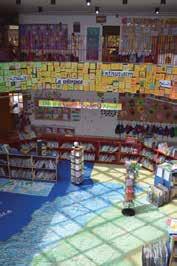

“That’s the idea,” beamed Mouchantaf who also drew on her own cardboard. “It’s an ever present reminder what IC is all about.”
The latest art work is part of a PYP Art unit of inquiry that reaffirms how art plays an integral role in a learning environment.
Kathy Heedles, Guest Conductor



16 summer 2015
The AMIS InternationalEuropeanHonorGirls’Choirfestival
THE AMERICAN SCHOOL OF PARIS 8-12 April, 2015
Alton Reynolds Tournaments

IC’s First Senior Rugby Tour to London

The school sent a rugby team to compete in the world’s largest schools rugby tourna ment in London in March. This marks the first time that IC participates in a rugby tour and indeed it is the furthest any IC sports team has travelled for competition. Eight senior players travelled to London to play in the South Lon don tournament as well as with CLFS school.
“The tournament director has said they would love to have the team back next year,” said Rugby Coach, Richard Bampfylde, adding that the team has already been invited by Loretto school to visit and play in Scotland next year.
“It’s a rare opportunity for all to play and stay with Scotland’s oldest boarding school.”
Competition,GymnasticsJordan

Lana Beydoun (pictured), grade 6, came in first in girls’ category
Aboudi Ounsi, grade 2, came in first in the boys’ category
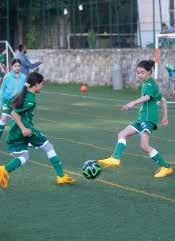
summer 2015 17
The Magical Afternoon: Dream Lebanon
There was something magical that afternoon. Perhaps it was the colorful paintings on the wall. Perhaps it was the soft afternoon sunlight or perhaps it was the nostalgic voices of children rising in unison. Or maybe it was the woman in the corner making ‘manakish’ on the rounded ‘sage’. There was definitely a certain feeling that afternoon. So much so that renowned Lebanese artist Tania Kassis couldn’t help but jump in amongst the choir and join in singing “One Lebanon.”
It was a touching moment. Among the dazzled audience, stood members of the Parents’ Committee – themselves completely amazed. This was not part of the plan. It had all gone more beautifully than expected.
The afternoon was all part of the ICPC ‘I Dream Lebanon’ campaign which encour ages students to appreciate the beauty of Lebanon. Upper Elementary and Lower Middle school students were handed out canvases and asked to draw a scene from Lebanon. Most drew nature scenes.

The ICPC even managed to get One Lebanon and its founder involved, soprano singer Tania Kassis. Kassis is famous for her patriotic songs which call for the unity of its citizens.


Students were first treated to presentations by Kassis and her group about Lebanon. The agreement was that Kassis herself will not perform. But the magic that afternoon obviously got to the singer as she suddenly joined the choir. Needless to say, everyone was thrilled. But the best was yet to come. Then and there, Kassis asked the IC choir to join her on stage for the upcoming One Lebanon concert only a few days away. The answer? A resounding: YES.
As for the ICPC, there was no time to bask in the glory. The Mayfair Pre-school event was only a few days away…
andGoodbye,thanks
After 50 years of working at IC, Elie Sfeir, Cashier at the Business office, is retir ing. IC honored him with a dinner at the Martin House garden.

To thank him for his loyal years, a plaque will be placed at his work place com memorating his unwavering service.
 Tania Kassis joins the choir
Dr Don Bergman, Elie Sfeir, Talal
Tania Kassis joins the choir
Dr Don Bergman, Elie Sfeir, Talal
18 summer 2015
Jundi ‘86
The Mayfair Event


For a while now, the ICPC has been struggling with a little dilemma: how to get parents of Preschoolers more involved in the IC Aftercommunity.yetanother brainstorming session, the answer came quite simply. Let’s invite them to have fun with their children on IC’s beautiful campus, more specifically the Preschool play ground. As the word spread, many parents volunteered to help out, under the theme of “love to recycle: how to make the world a cleaner and safer place.”
On May 9th, Pre-school and Lower Elementary children showed up to IC accompanied by their families.
Many organizations also got involved in the event.
Sukleen, for one, placed bins to collect old PE clothes. These would later be recycled into mattresses for the needy (the bins would remain for another two weeks). Next, it placed an up-cycling vending machine. With every water bottle dropped, students received small prizes.
Another company, Krafty Kids, provided all sorts of leftover material allowing students to create artistic masterpieces.
C2C created many game stations and students rotated from one station to another.
Just in case the little tykes got hungry – which they did - Trilica and Marget - provided a healthy buffet.
Moreover, students were allowed a rare treat: painting a wall by the Pre-school playground using green and safe lead-free paints offered by “ColorTek.”

It was all too much for the young participants. As one girl stated, “recycling turns things into other things, which is magic.” And so, with the great success of the Mayfair, the ICPC can finally rest. Not so. They have to start planning for their fund raising dinner taking place only a week away.

International College Parents’ Committee Dinner
summer 2015 19









20 summer 2015 IB Art Exhibit IB Art Students Tala RamseyNouraSophieDarwicheAkouryAlBistamiMarroucheJuliaAbiSaabMichelAzarDanaWaznehHannahMilletCelineCharlierClaudiaChidiac
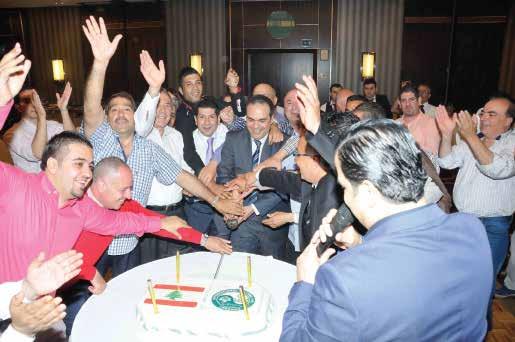
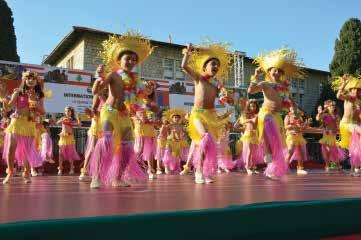
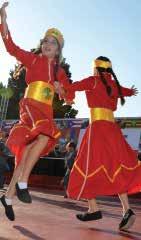
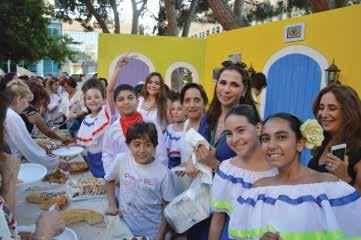
summer 2015 21 International Day 2015 Labor Day Dinner recipients of Debbas Award Ali Zaarour – cafeteria Youssef Attieh – Ain Aar retired Nazih Khoury 25 years of service Imad Kawtharani Ali MosbahZaarourKarout 35 years of service Mohamad Hammoud
Dinners and Events
Dubai Dinner
IC held an Alumni and Friends Fundraising dinner on the 28th of March at the Al Bustan Rotana Hotel in Dubai. The event fea tured singer Pamela Farhat. Special guest star, performer Maya Diab, came especially from Beirut to attend the dinner and help with the fundraising. The event was sponsored by Al Bustan Rotana Hotel, Bank Med, Dubai Agility, Blom France Bank, Canon and Patchi. All proceeds went to the IC Scholarship Fund.



 Maya Diab arriving to the dinner
Sami Nmeir, Dr. Don Bergman, Nadim Jaroudi ‘83, fouad Bardawil ‘47
rania Moneim, Karim Ghandour ‘89, Ikram Ghandour
Lina Al Alaili ‘79, Najwa Beydoun ‘76, Moufid Beydoun ‘64, Maya Diab, Nadine Akkaoui, Mohamad Hijazi
Maya Diab arriving to the dinner
Sami Nmeir, Dr. Don Bergman, Nadim Jaroudi ‘83, fouad Bardawil ‘47
rania Moneim, Karim Ghandour ‘89, Ikram Ghandour
Lina Al Alaili ‘79, Najwa Beydoun ‘76, Moufid Beydoun ‘64, Maya Diab, Nadine Akkaoui, Mohamad Hijazi
22 summer 2015
IC Alumni Dinner in Geneva
IC Alumni & Development Office hosted a dinner in Geneva on April 28, 2015 at Club La Nautique. The dinner was attended by more than 40 alumni and friends. The event was sponsored by HSBC. IC President Dr. Don Berg



man, VP of Alumni & Development Moufid Beydoun ’64 and Development Officer Nadine Akkaoui attended the dinner to promote the Partnership For Excellence Campaign and the Financial Aid Program.
 John McCarthy, Mary McCarthy, Don Bergman, Mazen El Zein ‘70, Walid Moukarzel
Hanan Stanbuli, yasmine Karanouh ‘77, Salwa Dalati ‘73, Akram Saade ‘69, Standing: Moufid Beydoun ’64, Ayman Abu Chakra’83
Standing: Said Osseiran ‘05, Moufid Beydoun ’64, Ayman Abu Chakra ‘83, Nadine Akkaoui, Bassemyounes
Sitting: Christine Arab, Karim Arab, Mirna younes
Sami Al-Habal, Sana Al-Habal ’83, Ayman Abu Chakra ’83, Dr. Mark El Hajj ‘02, fouad Hamiye ‘85, Nadine Akkaoui, Dina Harriri, Iman Sabbah, yasma fuleihan
John McCarthy, Mary McCarthy, Don Bergman, Mazen El Zein ‘70, Walid Moukarzel
Hanan Stanbuli, yasmine Karanouh ‘77, Salwa Dalati ‘73, Akram Saade ‘69, Standing: Moufid Beydoun ’64, Ayman Abu Chakra’83
Standing: Said Osseiran ‘05, Moufid Beydoun ’64, Ayman Abu Chakra ‘83, Nadine Akkaoui, Bassemyounes
Sitting: Christine Arab, Karim Arab, Mirna younes
Sami Al-Habal, Sana Al-Habal ’83, Ayman Abu Chakra ’83, Dr. Mark El Hajj ‘02, fouad Hamiye ‘85, Nadine Akkaoui, Dina Harriri, Iman Sabbah, yasma fuleihan
summer 2015 23
StartupLebaneseEvent
IC was proud to be a part of the Lebanese Startup Event which was held in New York on May 21st. It was a one-day meeting bringing together entrepre neurial Lebanese minds locally and abroad. The idea was to connect the Lebanese diaspora with international investors who will hopefully gain insight into Lebanon’s increasingly significant role as a thriving international startup hub.

The meeting was followed by a Gala Dinner which was attended by over 220 people.


 Moufid Beydoun ’64, Amb. Jeffery feltman, Jihad Azour, Salim Zeinni
Moufid Beydoun ’64, Hana Zoghbi ‘09
Moufid Beydoun ’64, Amb. Jeffery feltman, Jihad Azour, Salim Zeinni
Moufid Beydoun ’64, Hana Zoghbi ‘09
24 summer 2015



 Matt reynolds, Peter Thomson, rola Arnaout, Don Selinger, Talal Jundi ‘86, Abddel hamid Arnaout ’76, Anthony Jones
ford fraker, Don Bergman, richard Ward, Mona Bawarshi ’67, Anwar Al Mulla ’63, May Makhzoumi ’71, Maya Tohme, William Turner
Nijad Hammam ‘60, Suzan Shammas, Gilbert Jabr ‘62, Hanan Malouf, Imad Taher ‘58, Mrs. Jabr, fouad Malou ‘56, Mavis Hammam, Issam Shammas ‘63
Saad Captan ’76, Walid Daouk ’77, Mishka Mourani, Hadia Ghandour, Moufid Beydoun ’64, Zeina Adra, yusuf Kan’an ’71, Tamima Beyhum ‘69
London
Matt reynolds, Peter Thomson, rola Arnaout, Don Selinger, Talal Jundi ‘86, Abddel hamid Arnaout ’76, Anthony Jones
ford fraker, Don Bergman, richard Ward, Mona Bawarshi ’67, Anwar Al Mulla ’63, May Makhzoumi ’71, Maya Tohme, William Turner
Nijad Hammam ‘60, Suzan Shammas, Gilbert Jabr ‘62, Hanan Malouf, Imad Taher ‘58, Mrs. Jabr, fouad Malou ‘56, Mavis Hammam, Issam Shammas ‘63
Saad Captan ’76, Walid Daouk ’77, Mishka Mourani, Hadia Ghandour, Moufid Beydoun ’64, Zeina Adra, yusuf Kan’an ’71, Tamima Beyhum ‘69
London
summer 2015 25
Escape From Nepal
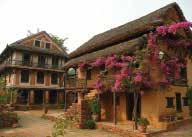
It was a spur of the moment decision for Ataya Eltibi ‘08. Why not? After all, it was the chance of a lifetime to attend Nepal’s most highly anticipated music festival. More than a thousand people were expected to fly in.
The festival was to be held on Friday April 24th. But then, just 36 hours before the event was to start, the show was cancelled.Nevertheless
Ataya decided to join the group of 15 young people going to Nepal anyway. It would be a break from his job in Dubai selling medical supplies. Other than his cousin, Hassan Rifai, he didn’t know anyone in the group.
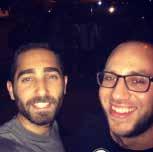
And so they landed at Kathmandu airport on Friday, rented a bus and headed towards their destination –the small village of Nuwakot, where life seemed to have stopped somewhere between the 17th and 21st centuries. Nearby was the golden-roofed Bhairab Temple, said to be one of Nepal’s oldest temples.Thegroup settled in the picturesque Famous Farm - 13 rooms surrounded by a peaceful garden. It was one of Nepal’s most serene getaways. That was Friday AprilThe24th.next
morning, the group was lounging around having a late breakfast. In a few minutes, they would start exploring the region. It was 11:56am.
First came the sound. Then the ground started moving. “It was like being on a boat on a huge wave,” said Ataya. “At first we didn’t realize what was going on.”
He stared in horror as the walls of the hotel began collapsing. There were horrible shrieks coming from everywhere as hotel staff and guests ran around in panic. Fortunately, the wall next to where the group was having breakfast held up. Still, they ran to an open field near the hotel. Finally, as the ground subsided, Ataya caught his breath and looked around. The villages just beyond the hotel – the same ones that they had passed through just yesterday – were almost completely levelled to the ground. The famous temple was destroyed. Looking back at his hotel, he couldn’t believe his eyes. The 7.8 magnitude earthquake had destroyed an entire part of it.
Suddenly, people started screaming and running again as aftershocks began rocking the country.
In Beirut, Suma Eltibi woke up bright
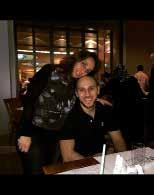
and early on Saturday morning. She wanted to leave early to Ehden to spend the day with her brother. On the way, the phone rings.
“Mom, I am fine,” said Ataya.
“I am fine too, Ataya,” said Eltibi. “Don’t worry.”
“No, mom you don’t understand,” continued Ataya. “There’s been an earthquake.”“Oh?”replied Eltibi nonchalantly. Since when do little tremors faze Ataya? “Well,” she finally said. “I am glad you are fine.”
“No, mom, no,” said Ataya. “It’s a big earthquake. A very big one. Three quarter of our hotel is on the ground.”
It took a few seconds for the news to sink“Mom,in. the battery is dying,” continued Ataya quickly. “I don’t know how we are going to get out of here. Just don’t worry.”
The line went dead.
Eltibi felt lightheaded. She checked the news in a daze. Havoc was everywhere. And Ataya was there.
Ataya. Her rock. It was Ataya who brought her back to life nine years ago when her young husband suddenly died of a heart attack. Her daughter, Aya, was two years old. Ataya was 14. Eltibi had sunk into a deep depression. But then shortly after his father’s death, Ataya marched to IC and sat for his exams. A few days later, he handed the corrected exam papers – all aced – to his mother.
“Life goes on Mom,” he said firmly. “It goesEltibion.”looked at her son and glimpsed the man bursting to emerge. He was right. Life did go on. Ataya remained by her side, making sure that it did.
Now Ataya was in an earthquake zone. She swallowed her panic and went into immediate action. She contacted relatives. Somehow or another, they were getting Ataya out of there.
Operation Saving Ataya went into action. The living room was turned into
Suma Eltibi and her son, Ataya
Ataya and Hassan, just before boarding the plane to Oman
famous farm before the earthquake
26 summer 2015
official-like headquarters.
It was nightfall and the exhausted group laid down in the open field to get some“Wesleep.have to get out of here,” said Ataya in the morning. Despite the horror, he was cheerful. “We can do this.”
The group was tired, dirty and hungry. Fortunately, most had brought snacks from Dubai. Samaritans were also giving out drinking water.
The group was relieved to find their bus – precariously hanging over the cliff – but still intact. All around them, people were emerging looking dazed. Many were injured and had bandaged themselves with household linens.
The group began their drive to Kathmandu. “This is when the fear really began for us,” recalled Ataya. “The road, much of it cracked, was winding over cliffs. One wrong move and we would fall down the valley.”

Indeed, they could see that many cars and buses had slipped down during the quake.Tomake things worse, the aftershocks continued. More often than not, the road was blocked by a variety of debris from landslides. The group would jump off and clear away a path. They finally made it to Kathmandu. The scenes of devastation before them were simply overwhelming. Still they managed to make their way to their hotel (they had made reservations there earlier from Dubai). Fortunately, it was still standing. They envisioned a meal, shower and beds. But no sooner had they set foot in the hotel, then another earthquake hit. Guests ran outside screaming in panic. It began to rain.
The group made their way to another hotel. But no one was allowed in. “Let’s just pretend that we belong,” whispered Ataya.
Despite their filthy appearance, the hotel personnel let them in. Guests were in the courtyard. The group joined them and got ready for another night on the wetFortunately,ground. they were able to charge theirSumaphones.Eltibi was monitoring the
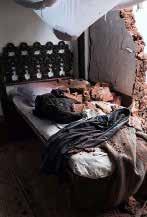
minutes of the news. Where was Ataya? The phone rang.
“Mom, we made it to Kathmandu, we are fine,” said Ataya.
“Go to the airport Ataya,” she told him. “Some airlines are flying in. I’ll get you on any airline I can find.”
In her ‘headquarters’, the TV was converted to an airline tracking device. Eltibi watched dozens of planes making their way to Nepal. Most were aid planes. Commercial airlines were diverted away. Still, with every commercial plane that approached, Eltibi reserved a place on board.Bynow, she and Ataya were on WhatsApp. Two airlines came near and hovered over the Nepalese airport but finally landed in India instead.
“Ataya,” she wrote, “an Omani plane is heading your way. I have reserved two tickets, for you and Hassan. Try to get on it.” Ataya hesitated. What about the rest of the group? His mother assured him that
they would be evacuated on a later flight.
Incredulously, Eltibi watched as the plane flew around in circles for four straightFinally,hours.theplane began to descend.
“It’s at 8,000 ft., now at 7000ft,” she wrote to Ataya. “It’s at 3000ft.”
Then suddenly another message to Ataya:“Itlanded and will only stay for 20 minutes. You have to get on board right now.”The airport was swarming with people. Somehow, the men managed to get on the plane. “Mom we’re on board,” appeared a message on Eltibi’s phone. “We’reRelieved,leaving.”Eltibi left the ‘headquarters’ for a few seconds. Upon her return, relatives were looking at her in a very odd way.“Suma,” they said hesitantly. “Ataya’s plane disappeared from the grid. There’s been another earthquake….”
Frantically, she scanned the grid. Where was the plane? Did it get caught in the quake? All sorts of horrible images flashed before her.
She suddenly had a brainwave. She contacted her brother-in-law in Canada – a computer engineer. He in turn immediately tuned into the tracking device. He discovered another flight scheduled to fly on the same route. He zoomed into that flight. And there, just underneath it, barely discernible, was another flight. It was the Oman airline, safe and Cheerssound.wentup in the Beirut headquarters. And then came the most beautiful phone call.
“Hi Mom,” said a cheerful voice. “We are in Oman and heading to Dubai. I can’t wait to shower.”
The Nepalese earthquake on April 25th killed more than 8,000 people and injured more than 19,000. Hundreds of thousands of people were made homeless with entire villages flattened. UNESCO heritage sites and centuriesold buildings were destroyed. The earthquake triggered an avalanche on Mount Everest, killing many. There have been more than 100 aftershocks in the days following the quake.
The group accompanying Ataya were evacuated in a separate flight only a few hours later. They are all back at their jobs in Dubai and reportedly still keep in touch.
 Nuwakot after the earthquake
Ataya’s hotel room
famous farm after the earthquake
Nuwakot after the earthquake
Ataya’s hotel room
famous farm after the earthquake
summer 2015 27
The Businessman and the Beirut Art Fair
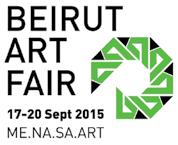

He looks like a businessman. He acts like a businessman. He talks like a businessman. And, well, he is a businessman. And a share holder activist. And a university instructor. And a consultant. And a magazine publisher (Ex ecutive). And an active advocate of civil society. But that hasn’t stopped yasser Akkaoui ’88, father of two IC students (Talal and Malek), from volunteering to organize one of the big gest art events every year - right here in Beirut.
It has to be Beirut and not another Arab city because “this is what we are known for,” he said. “This is where authentically art should exist. We are the cultural hub. It is an integral part of our heritage.”
Not that he ever had any passion for art before. He never really even thought about it. And no, he isn’t some secretly coveted artist. But somehow, once he fell into organizing the event, he found himself hooked.
He suddenly fell into this new world thanks to a chance meeting with a French woman, Laure d’Hauteville – an art consultant who was commissioned in 2003 by slain former Prime Minister Rafic Hariri to go to the former Israeli occupied southern zone and find bud ding young artists. Their work, ‘ArtSud’, was exhibited in Tyre.
Its success spurred Hariri to commission her yet again in 2004 to organize a Beirut Art Fair. Unfortunately, he was assassinated before it could take place. And that seemed to be the end of the art exhibits.
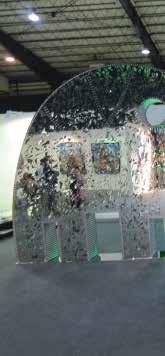
At least until 2010 when Akkaoui met d’Hauteville and heard her story.
He felt a certain pull, because ”you can’t live in Lebanon without being involved in civil society or at least advocating for a Lebanon you want to live in as compared to the one that it has become,” he said.
He threw himself into the task. First he contacted and won the support of the then Ministry of Culture. As d’Hauteville contacted galleries and artists, Akkaoui managed to convince the Lebanese customs to allow art from the MENASA (Middle East North Africa South Asia) region to enter the country taxfree. Then came the enormous task of secur ingFinally,sponsors.onJuly 14, 2010, thirty galleries exhibited their work – each boasting a mas terpiece of some kind.
It was a huge success. Akkaoui and d’Hauteville knew they couldn’t stop now. And so for the next four years, the Beirut Art Fair has been taking place at Biel, where now over 60 galleries from across the MENASA region exhibit more than 1,600 art pieces at
28 summer 2015
tracting more than 20,000 visitors every year.
“To our surprise, even with the situation as it is in the region and a lot of insurance companies not accepting to insure art galler ies coming to Lebanon,” said Akkaoui, “we have still been able to get 60 galleries, which is aFortunately,lot.”
d’Hauteville manages to sum mon up a team of French volunteers to help organize the artistic part of the event while Akkaoui and a group of Lebanese volunteers help out with finding sponsors every year.
“We are convinced that it should not stop, no matter what the circumstances are, no matter what are the financial results because it is definitely contributing to bringing back what belongs to Lebanon,” he said.
Far from stopping, the Beirut Art Fair has spread its message to the streets – Beirut Art Week – as it simultaneously exhibits local art
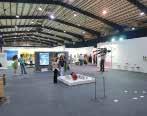

ists’ work on the streets of the city.
“You can now even organize a curated tour of all the art events during that week,” said Akkaoui. “It helps visitors discover our city.”
The ‘art’ spirit has caught on as three art museums are scheduled to open in the next fewWordyears.of his involvement has spread. Ak kaoui has now been approached by the film industry. It seems they also need help. And so it begins again: Akkaoui is currently creating a fund which will only invest in films.
“We must continue to allow our country to be the launching pad of all these beauti ful ideas,” said Akkaoui. “We must continue to fight to make Lebanon once again the beacon of creativity in the region.”
The Beirut Art Fair will take place from the 17th to the 20th of September 2015 at Biel.

summer 2015 29
artofthemideastdotcom.wordpress.comartofthemideastdotcom.wordpress.comartfairinfo.com
Hope: Anything is Possible
There’s Zeina. There’s Leila. There’s Yasmine. There’s Aya. There’s Farah.
And there’s Hope.
Unlike the others who boast shiny shocks of hair, Hope is eight years old and bald. Hope has cancer and is going through chemo. Still her eyes look rather twinkly – despite the glassy stare. But the others don’t mind. They like her for who she is – bald or not. They embrace her for her strong character. They laud her courage.
Hope is one of them. She feels accepted and loved. She is like everyone else.
If Hope,only.
you see, is a doll. So are the others.
The brainchild of Lamice Joujou ‘91, Hope represents everything that Joujou has been longing to see in Lebanese society: the acceptance and integration of all children – including those with cancer or who suffer from some kind of disability.
“We tend to hide them,” she said. “Why? Life is not “la vie en rose.” We don’t all have perfect features and perfect hair. We are always highlight ing the pretty girls with lovely hair. What about the others? These children make up an important part of society.”
Her “My Doll and Me” collection is based on the American Girl doll line – which has swept across the US and aims to empower girls. Much in the same style, My Doll and Me boasts matching doll-girl outfits and aims at raising girls’ self-esteem.
Hope, however, is purely Lebanese. It all happened quite unexpectedly. As Joujou and her team were putting in orders for various dolls, it suddenly occurred to her to order a bald doll.

“As a sample?” asked her colleague.
“No, as an order,” answered Joujou determinedly. “She has cancer and is going through chemo.”
And that was it. Hope – the ‘girl who helps girls fighting cancer’ - made her appearance in February. Part of the proceeds from the sale of Hope dolls goes to St. Jude’s Cancer
Center. A Hope doll will soon be distributed to all girls in the Center. Next in line are dolls withThedisabilities.message: we accept you for who you are.The message and her business caught the attention of Vital Voices – an international NGO which trains and empowers women leaders worldwide. It offered Joujou a one year online intensive program to help her take her business to the next level.
From there, Joujou and two other Leba nese women were selected to participate in a program run by the US State Department, Harvard and Goldman Sachs, which consti tuted a two-week training program in the US. The program brought together 29 women from 15 Middle Eastern countries, with the aim of teaching them entrepre neurial skills.
In March, 2015, Joujou, the mother of three (Luna –IC graduate, Luay – current student and Luka – soon-to-be preschooler), found herself in New York practicing how to present an “elevator pitch” (a short summary about her business), attending intensive Harvard classes, and dining at the Benjamin Franklin state dining room with US Secretary of State John Kerry and other dignitaries.
At the end of the dinner, Joujou couldn’t resist leaving a small gift behind: a look-alike doll of Michelle Obama.
Joujou and the women were dubbed the “strong women in the Arab world.”
It was all an honor which Joujou still cannot quite believe she has received. Only eighteen years ago, Joujou was debating where to leave her infant girl, Luna, as she searched for a job. But she couldn’t find a nursery which satisfied her.
“So,” challenged her brother over dinner one day, “start one.”
Along with her mother, she took up the challenge. Dent de Lait nursery opened its doors in 1997. From there, Joujou cre ated Mazitou Productions House, Frizzy (an
30 summer 2015
weforacceptyouwhoyouare
‘edutainment’ center) and, finally, My Doll and Me was launched a year ago, with Hope coming on the scene just a few months ago.

“I made a lot of mistakes along the way but I learned a lot too,” she said. “Maybe that’s why I created Hope. She represents what I want girls all over the country to know: things can happen and are possible. They can overcome anything and become anything they want to be.”

“every girl is doesn’tandinsidebeautifuloutcancerdefineherandherbeauty”
Joujou (left) in the
US
’42
Zuhair Annab graduated from the School of Pharmacy at AUB in 1948 and joined the London School of Hygiene & Tropical Medicine, University of London in 1954. He was offered Aca demic Postgraduate Diploma in Bacteriology in 1956. He is now 92 years old and “thank God I keep good health,” he writes. “I read your IC Newsletter with great pleasure and much inter est. It keeps reminding me of the good old days at IC & AUB campuses.”
’75
Hana Alamuddin announces the publishing of her new book, تيب ةياكح و ةصق last autumn by Asala Publishers. An illustrated children’s book, it is written in simple Arabic to be accessible to children from the ages of 7 to 11. The story is based on the peasant house that I was involved in rebuilding in the village of Eble el Saqi in 2005 when a member of the executive committee of APSAD. The book weaves a story around the house, its build ing, and the social habits of its inhabitants as an adventure that a boy goes through when he visits his grandfather in the village.
’80
ralph Chami is currently the Assistant Director in charge of Capacity Development for IMF Staff and officials of 188 member countries. After teaching at University of Notre Dame, IN, for nine years, he joined the IMF in 1999. Currently, he is lives in McLean, VA and is married to another IC graduate rima Saliba ’79. They have a son, Rayyan, 16. “I have also reconnected with some of the IC rock band “Pink Panthers” band members (’76-78): Fawzan Barrage (vocals and guitars) who now resides in Canada, and Pierre Kerbage (Piano and keyboards) who is in Texas. I was on lead guitar and vocals. The band also had bass ist Jamal Hemadi and Emile Boustany on drums. We also had cameo members such as Marwan Jamal (guitars), and George Miller (Trumpet).”
Wassim Sultani studied civil engineering in the US at Texas A&M. He worked in different countries and settled in Montréal working in project management.
’81
Talal El-Khalil is now the General Manager for PepsiCo in the Middle East and North Africa (MENA). He will relocate to Dubai where he will be based while his family, roula Abou Dargham ’87 and his three children, Mira, NourTalal and Sani will continue living in Beirut. He can be reached through his email address: talal.el-khalil@pepsico.com
’84
fouad Osseiran lives in Valencia, Spain and has been the
President of the CAU Rugby Valencia team for the past 15 years. “This year we made history by being proclaimed champions of Spain for under 14, under 16 and under 18 divisions,” he writes. “Our senior team finished second place in the second division of professional rugby in Spain.”
Khalil Shalabi has a new job as Vice President of Strategy, Technology and Markets at Austin Energy. Kristy Shalabi is the Director of Marketing for BPL plasma and the three kids have settled into their respective schools. The oldest, Joseph, is a Junior in Electrical Engineer at the University of Texas. The Shalabi family moved to Austin Texas from the NYC area in April of 2014 after 20 years looking for warmer weather and a change in life style. “We haven’t run into any IC alums in Austin although Ara Malkhasian lives in Houston and we visit on occa sion,” he writes.
’88
Khaled Itani joined the team at Google in its headquarters in Mountain View, California. Khaled resides in California with his wife (Darine) and two boys (Yousef and Ziad).

32 summer 2015
Updates
Updates’89
Mazen Slim joined Manulife/John Hancock in Montreal Canada the last quarter of 2014. He is handling corporate clients wealth management and financial planning. “I still remember Mr. Copti class runaway!” he writes, “a few students including myself left the class to have the famous la7m3ajin at Chaouki! Mr. Copti went to gently bring them back to enjoy tarikh el 3ouloum!”
’92
razan Magrabi is currently hosting her new weekly tv show The show consists of a themed episode each week with special guests & Arab and so many entertaining segments.

number of 50,000 students traveling to the US from Saudi Ara bia every year, Sara is delighted to serve as a member of the US mission to Saudi Arabia.
Nader Houella is currently working two jobs: 1) Consultant to the President of Makassed Organization for Communication and Media affairs 2) Instructor of Marketing and Management at the Lebanese International University.
’03
Maher Abdel-Sattar graduated with a doctorate of pharmacy on March 30, 2014, from the University of California, San Fran cisco (UCSF), the #1 ranked school of pharmacy in the United States. He is now working as a Health Outcomes & Managed Markets Fellow at Xcenda, a member of the fortune 28 compa ny AmerisourceBergen. Concurrently, Maher is also completing a Master’s of Science in Applied Pharmacoeconomics through the University of Florida. He is reminiscent of his days at IC and is determined to continue paving his path as a consultant for pharmaceutical industry in years to come.
’04
’99
farah Dakhlallah is living in the UK and married to Dr Adam Coutts since 2009. After several years as a broadcast journalist, and five years at the UN, she joined the UK Foreign and Common wealth Office. After IC, she completed degrees at the Universite Saint Joseph, London School of Economics and Uni versity of Cambridge. “It would be great to organize a 20 year reunion soon,” she writes. “I’m attaching a class photo I recently came across.”
’01
Loubna El Amine is now Assistant Professor of Government at Georgetown University. Her book, Classical Confucian Political Thought: A New Interpretation, will be published by Princeton University Press in September 2015.
’02
Sara Mukallid is currently the Education Adviser at the Embassy of the United States in Riyadh,Saudi Arabia. With an estimate

fawzi Saoud did his undergraduate training in biology at AUB and graduated in 2007 followed by medical school. He gradu ated in 2011. After completing one year of residency at AUBMC, he decided to travel and specialize in obstetrics and gynecology at the university of Texas medical branch UTMB in Texas. He is currently getting ready to start his fourth and last year of resi dency and is looking forward to continue his training in the field of maternal fetal medicine and genetics.
’05
Claudia Matta is currently working as a Training and Educa tion Specialist for Medtronic. She is in the Diabetes Business for Middle East and North Africa. “A lot of traveling involved but I am getting the wonderful opportunity of reuniting with IC classmates who are abroad!” she writes. “I would love to hear from fellow classmates, you can contact me at matta.claudia@ gmail.com”
’13
Zeena-Carola Sinno joined the Medical School at Charité University Hospital in Berlin after finishing the Baccalaureate at Lycée-Berlin with high distinction in 2013. The Charité is one of the largest university hospitals in Europe. More than half of the German Nobel Prize winners in medicine and physiology come from the Charité.
rayan Al Barry a biology sophomore came in third place for Founders Day Essay Contest titled “A Summer to Live” .
summer 2015 33
“ةولح ةايحلا“ On ةايحلا TV.
(egyptian
)
Letters to the editor
Ousama Naaman ’70 and his wife, Laurice, hosted the IC class of 1970 who enjoyed each other’s company at the hosts’ Monte Verde villa where they talked about the ‘old days’.

“My classmates’ gratitude and mine goes to who took every effort to invite us all,” said Dr. Imad Kaddoura who is a Profes sor of Plastic Surgery at AUB. He sent the following picture:
penalty generally inflicted on us by the most ‘somber’ among our teachers of Arabic.
Still we could manage to fetch a smile somewhere in the many layers of the boring experience, such as the one I can never forget:
Our friend Ibrahim was asked to translate a passage in Arabic written by the famous Gergi Zeidan under the title: My First SchoolAnd the opening page included the following: implying that culture was an exclusive ‘vir tue’ or ‘privilege’ of the clergy.
Ibrahim (whose family name can’t be disclosed here and now) found it safest to use the dictionary so he translated Zeidan’s claim (or transliterated it) as follows:
“Science was constipated in the monks.”
Marwan Najjar ‘65
Here is my funny story back in the winter of 1979. Some of our friends in class went skiing at Faraya for the week end and they came back to class on Tuesday instead of Monday, because ev ery Monday we had a quiz in Arabic literature and they were not ready to take this exam. On Tuesday when they came back and when asked by the teacher for the reason of their absence, they said there was a big snow storm and they were stuck in Faraya, the only part they forgot is that they had a big tan on their face because of a big sunny week end they had.
Wassim Sultani ‘80
I recall one very memorable time at IC: It was the year of 1964 or 1965, and I was in my second year at IC. My brother and I were assigned to bus #5. As I was going to that bus I was shocked to see it was from the 1940s, old and super ugly. I told my brother to let me choose a pretty one and got on a modern bus instead. The problem then was that it went all the way to the outskirts of Beirut .My brother became really worried as we were the only ones left on the bus. The driver kept asking me where is your home? I had no idea. So from 12 to around 3 pm we went all over town. Finally, the driver called the bus service at IC and was given our address. We arrived home only to see my parents running in the street. I recall my mom looked as if we just came from Normandy! These were great days ( like the song goes’, I will give all my tomorrow for a single yesterday). I am a Medical doctor now as is my brother who now lives in Montreal, Canada. My father was also a very prominent doc tor who looked after IC students as a young MD at AUB.(DR. Joseph AZAR). It’s funny how history keeps repeating itself. My mother is Dutch and brought up a mighty good family, indeed!
Dr Elias J. Azar ‘95
One of the least popular subject matters in IC of the mid 60’s was (and perhaps still is) the torturous translation hour, a weekly
IC did really take a part of my heart. Leave aside all memories I have, skipping classes, coming in late and trying to find excuses, the performing arts concerts, international day, fun day & all these “copyright IC” events, IC mostly has my heart in one cru cial thing I might say: The way of living. The way of interacting with people and of dealing with everyday life. Maybe because we were taught to always have a sort of independence in what ever we do, because we were exposed to so many IC rituals, be cause we were always pushed to our maximum limits, because we were exposed to people with different backgrounds. And this is how I count my blessings. I did not appreciate or see what IC has given me, how IC has nurtured me until I came across the challenges in the real world and began my sophomore year in AUB. If IC hadn’t taught me to challenge myself, I wouldn’t have been able to double major in both Economics & Nutrition and Dietetics. If IC hadn’t taught me to balance out all aspects in my life, I wouldn’t have been able to sing in the outdoors concert or be a part of AUB’s got talent. If IC hadn’t taught me to grasp any intellectual opportunity I got, I wouldn’t have been able to be on the other side of the world, here in Boston for the summer taking two challenging courses in BU , & if IC hadn’t taught me confidence yet within the “humble range”, I wouldn’t have been able to promptly sing anywhere, anytime, or even share this with you. So cheers to you IC, to the IC family, I miss you everyday.
Dina El Achi, ‘12
Mr. & Mrs. Jihad Shibaro, Mr. & Mrs. Mounir Karam, Mr. Ousama Sader, Mr. & Mrs. Saad Matar, Miss Hiba Kadi, Myself (my green T-shirt was chosen with no political background), Mr. & Mrs. ramez Haddad, Mrs. Camillia Saad, Mr. Mahmoud Chreih, Mr. Jalaleddine fawaz, our gracious hosts Mr. & Mrs. Ousama Naaman and Mr. & Mrs. Abdo Ghandour.
34 summer 2015
I don’t remember the details about my geometry or grammar lessons during my years at IC, but what I do remember and what I have carried with me, are the life skills that teachers brought to the classroom. Hector Badran, my history teacher, was one of those who left their mark on my life.
It was my first day in the 8th or 9th grade of middle school. Mr. Badran walked in and asked a question about history. I can’t recall what it was. He pointed to each student in turn to answer. Each one of us was vying to outdo the other in our self-proclaimed knowledge of the world and gave what we thought were brilliant answers. Silently, Badran kept pointing to one student after another. Finally, the turn came for a boy to answer the question. The boy looked at the teacher and slowly
answered: “I don’t know.”
Badran stopped the class. “Finally,” he said. “Honesty.”
He turned to the rest of us. “No, you don’t know. And only once you admit that you don’t know, is when you will start to learn. Just say: ‘I don’t know but I want to learn’.”
I never forgot that. I do believe that this is when I really started to learn. I have often told my two children the story and continuously echo Mr. Badrans’ words: “just say I don’t know, but I want to learn.”
And you will learn. Thank you Mr. Badran and God rest your soul.
Reem Haddad ‘87
We regret to inform you that George Issa (IC teacher for 27 years) passed away in March 2014. IC staff and faculty send their deep est condolences to the Issa
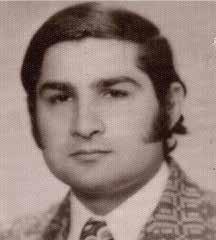
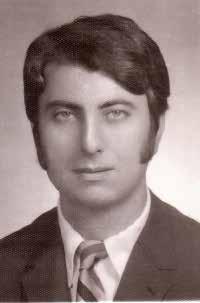

family.Weregret
to inform you that Elie Abou Rejaily (IC gateman for 17 years) passed away in April 2014. IC staff and faculty send their deepest condolences to the Rejaily family.
It is with regret that I inform you of the demise of my father, Jacques Damiani ‘44, on the 7th of March 2015 in Beirut after a short but difficult battle with leukemia. Till the day he died, he had been surrounded by his family and the few remaining IC friends. Till the end he had Palestine on his mind and his IC friends in his heart. … May his soul rest in peace.

Mazen Damiani ‘89
We regret to inform you that Bassam Abu Kamil ‘67 passed away in April 2014. IC staff and faculty send their deepest condolences to the Abu Kamil family.
MemoriamIn
summer 2015 35
Hector Badran (1941 – 2015)
$500,000 Shaping students’ dreams $100,000 The power of
So far, we were able to raise $1,069,273. continue to on support make a difference +961-1-367420
$0 Every

Internat I onal College
P.o. Box 113-5373, Beirut, lebanon. tel. 961 1 367420/33, Fax: 961 1 367433. email: alumni@ic.edu.lb 215 Park avenue South, Suite 1710, new York, nY 10003, U.S.a. tel. : 212 529 3005, Fax: 212 529 8525. email: icny@intlcollegeny.com www.ic.edu.lb Facebook: www.fb.com/IClebanonalumni twitter: www.twitter.com/IClebanonalumni


InternationalCollege INTERNATIONAL COLLEGE ANNUAL FUND
A mind is a terrible thing to waste $100
gift counts
giving
We
count
your
$1,000,000 Leaders
+$ theContinuingLegacy For your contributions Contact alumni@ic.edu.lb Tel:
